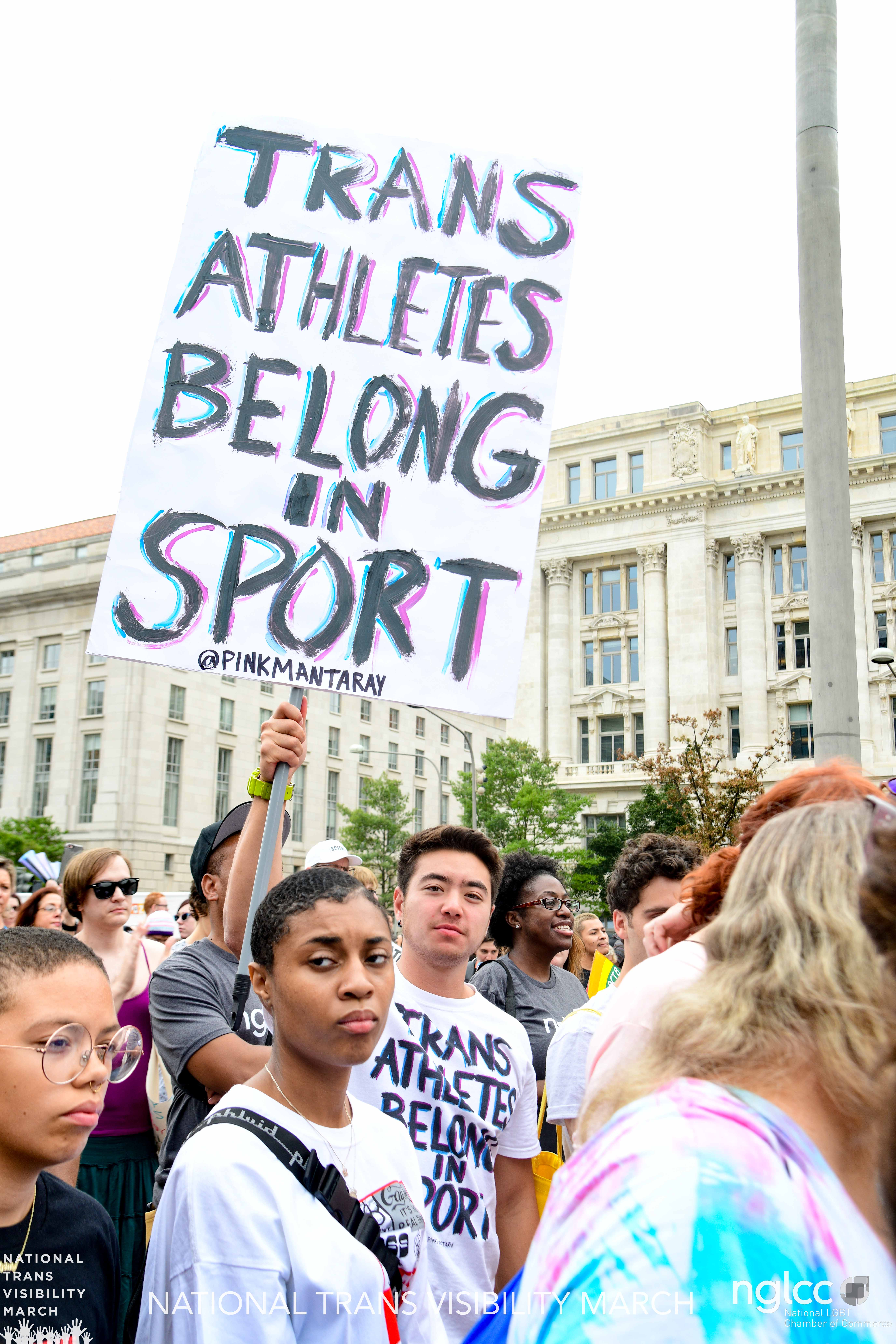We spoke to the athlete, author, and advocate for trans rights, radical body acceptance, and mental health awareness about his work to provide us with the fundamental language and context of gender so we can pave the way to understanding, acceptance, and inclusion.
In 2015, Schuyler Bailar made headlines for being the first openly transgender athlete to compete in any sport on an NCAA Division 1 men’s team.
Up until this point, his journey had been difficult, plagued by body image and self-esteem issues that he would later discover were tied to his real struggle with who he was.
Coming to terms with the fact that being authentically himself would mean transitioning, Schuyler had to prepare for the consequences and the challenges it would entail from a young age.
‘I resisted for a long time out of fear it would affect where I was allowed to belong,’ he tells Thred. ‘But there was also this peace in knowing that I wouldn’t be fighting an internal battle anymore.’

With this acknowledgement came an acceptance that inspired Schuyler to claim his true identity. In choosing to do so, his story garnered international attention, and has – over the years – been recounted in thousands of media outlets from MTV to The Washington Post.
Yet despite the much-needed discourse on trans inclusion that Schuyler’s openness gave rise to, transphobia has only proliferated since, bringing with it an increase in anti-trans legislation across the globe.
Fiercely determined to tackle this, Schuyler’s work today centres on providing us with the fundamental language and context of gender so we can pave the way to understanding, accept that transphobia affects us all, and strive to engage with our shared humanity to guarantee that all people – trans folks included – receive the care, respect, love, and liberation from the systems seeking to silence them that they deserve.
We spoke to the athlete, author, and activist about what this involves.
View this post on Instagram
From insecurity to advocacy
Regarding what influenced his pivot to advocacy, Schuyler explains that it was a ‘stumbling intention,’ which presented itself in 2015 when he came out as trans and joined the men’s team at Harvard.
‘People wanted to cover it because it was a big deal for swimming,’ he says. ‘That gave me the platform to talk about my experiences. It was intentional because I knew this would raise awareness and it was stumbling because I never could have predicted I’d end up here.’
In the run up to becoming the ‘version of [himself] that [he] felt most aligned with’ and the ability to talk about his experiences that coincided with this, Schuyler had to overcome a series of hardships, much of which he dealt with alone.
‘I didn’t have the community that I needed,’ he says. ‘There was no one else I could look to who could tell me what would help me during the process of confronting my internalised transphobia and reassessing what ‘belonging’ meant to me.’
As he outlines, Schuyler’s initial insecurity toward which spaces he would be welcomed into acted as the catalyst for taking his learnings to greater heights.
.jpg)
‘Everybody wants to belong to some degree,’ he says, remarking that his intention to raise awareness was borne from a desire to ensure that we all recognise our right to be accepted for who we are.
‘You have to both welcome yourself in and people have to welcome you in. In the absence of either, you have to interfere or ask to be invited. I often felt like I most belonged when I was welcomed and believed that I did regardless of what anyone said to suggest otherwise.’
This is easier said than done, however, particularly as anti-trans rhetoric continues to delay progress both on and offline.
It’s for this reason, Schuyler asserts, that we must think outside the binary and focus on our commonality in order to move past the increasingly politicised and unproductive tension regarding trans identity.
Because, as he writes in his vital, timely new book, He/She/They, ‘the exercise of looking beyond one’s identity – be it transness or Blackness or Asianness or disability or queerness – is an exercise in peering into humanity.’
View this post on Instagram
Getting to the roots of the issue
‘The attack on trans people is not just about trans people and I consider this to be where everyone misses the point,’ says Schuyler. ‘When we start to police bodies in order to exclude, we actually have to police all bodies because in order to decide which ones are trans, you have to evaluate everyone.’
Schuyler, who – as a storyteller – is sincerely well-versed in breaking down complex ideas into accessible information, notes that this largely stems from the archaic power structures which have sought to suppress marginalised voices throughout history.
‘White supremacy and the patriarchy have historically rigidified womanhood,’ he says. ‘This restrictive notion of what womanhood means and who can access it makes this a problem that affects us all.’
Expanding on this, he explains that discriminating against someone based on their transness is to uphold the gender binary created by colonisers and enforced to maintain control.
‘In that sense, transphobia affects everybody,’ he says. ‘Trans people are acutely aware of this construction, but we must all acknowledge it because doing so will allow us to join the fight in a more authentic manner. I didn’t exit the box of womanhood to enter somebody else’s box of manhood. We all deserve the right to choose what works for us.’























